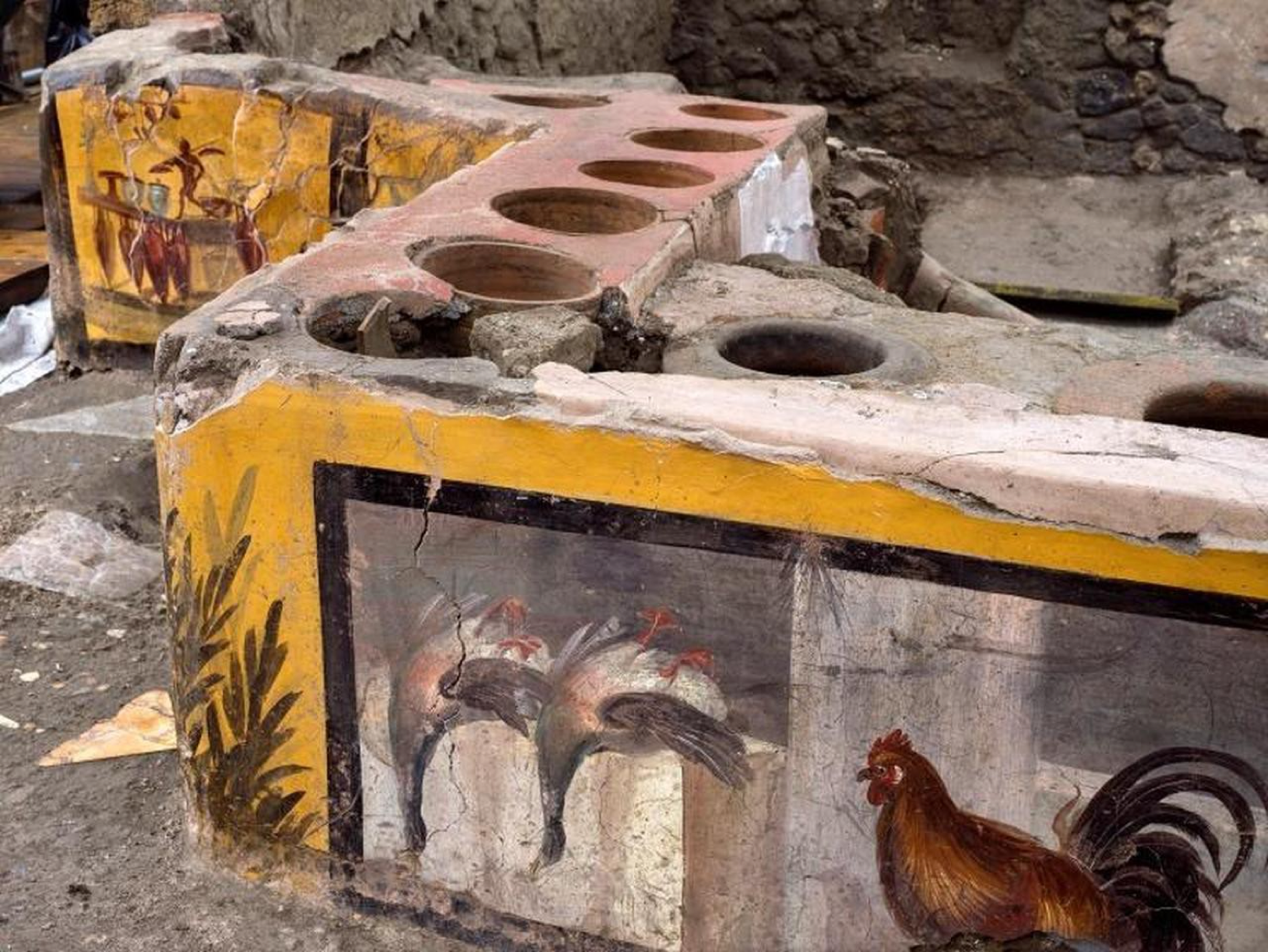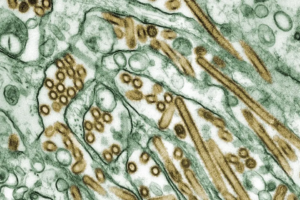The city of Pompeii was buried in a devastating volcanic eruption in 79 AD, but archaeologists are still uncovering extraordinary structures in the region. On Saturday, they unveiled their latest discovery — an extremely well preserved ancient “snack bar.”
The Thermopolium of Regio V would have been a shop where hot food is sold, the equivalent of a modern-day street cart or fast-food establishment, officials said. It was partially excavated in 2019 and revealed in its entirety on Saturday.
Found in the ruins were items such as an image of a Nereid riding a seahorse and a fresco of gladiators in combat. During the most recent phase of excavations, archaeologists uncovered further colorful still life scenes, including depictions of animals that were likely sold in the shop, such as mallard ducks and a rooster.
There was also a depiction of a dog on a leash, which appeared to serve as a warning, as well as a complete skeleton of a dog between the shop’s doors.
“A mocking inscription can be found scratched onto the frame which surrounds the painting of the dog: NICIA CINAEDE CACATOR — literally ‘Nicias (probably a freedman from Greece) Shameless Sh*****!,’ officials said. “This was probably left by a prankster who sought to poke fun at the owner, or by someone who worked in the Thermopolium.”
Archaeologists also found containers, which held nearly 2,000-year-old bone fragments of animals that were sold there, stored in the shop’s counter. Traces of pork, fish, snails and beef were found in the containers, which archaeologist Valeria Amoretti said indicated “the great variety of products of animal origin used in the preparation of the dishes.”
Found in the small square in front of the shop was a fountain and a water tower. Inside the shop itself were nine amphorae, a bronze drinking bowl called a patera, two flasks and other ceramic jars.
Human bones were also found at the site, some belonging to a 50-year-old man who appeared to have been in bed when the eruption occurred.
“As well as being another insight into daily life at Pompeii, the possibilities for study of this Thermopolium are exceptional, because for the first time an area of this type has been excavated in its entirety, and it has been possible to carry out all the analyses that today’s technology permits,” said Massimo Osanna of the Archaeological Park of Pompeii. “The finds will be further analyzed in the laboratory, and in particular, those remains found in the dolia (terracotta containers) of the counter are expected to yield exceptional data for informing an understanding of what was sold and what the diet was like.”
According to officials, Thermopolia, where residents enjoyed drinks and hot food, were very common in ancient Rome, when people usually consumed food outside the home. Pompeii alone had 80 of them.




